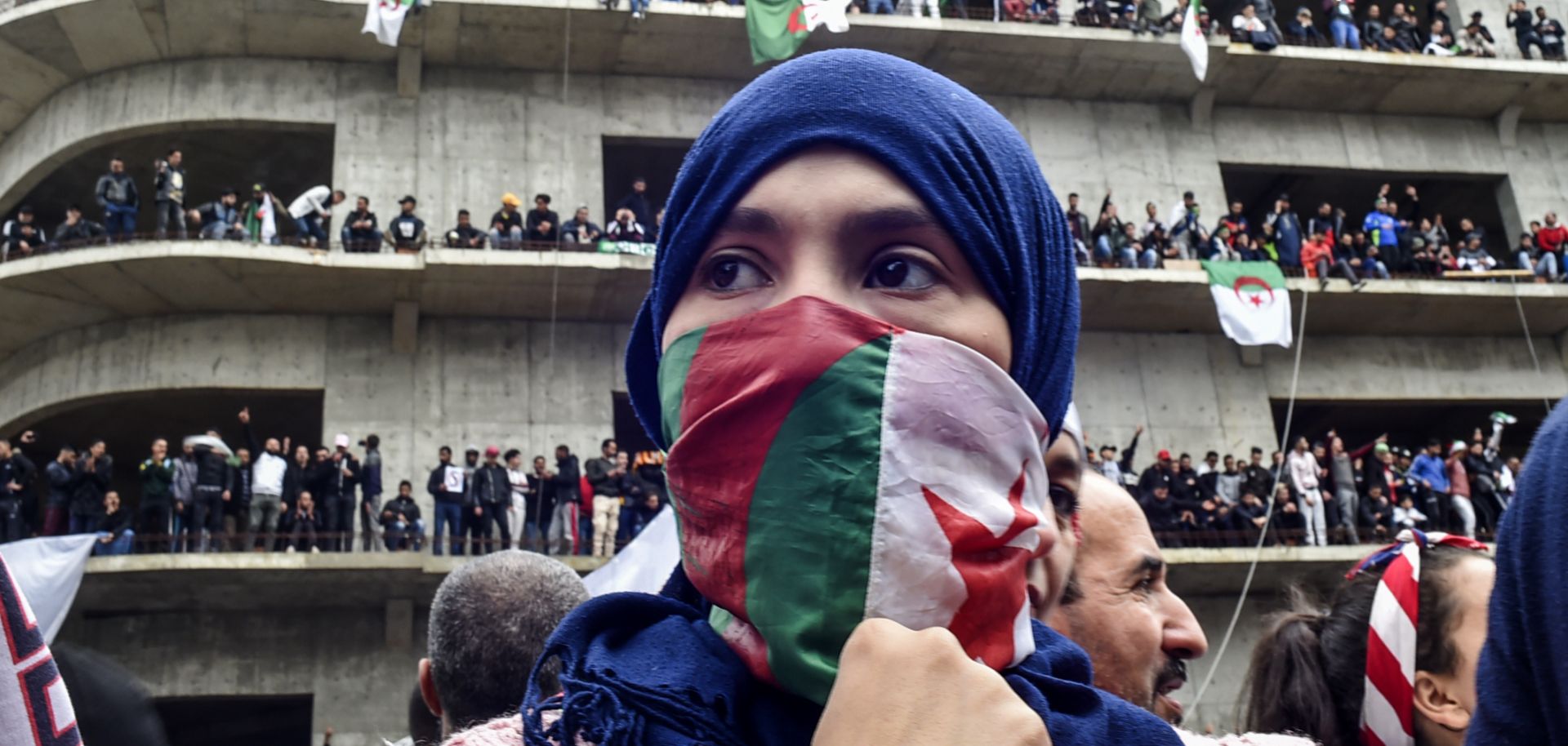GUIDANCE
Algeria Reaches a Transitional Moment
Mar 13, 2019 | 21:13 GMT

Protesters rally in Algiers on March 8 against President Abdel Aziz Bouteflika's bid for a fifth term. Bouteflika announced on March 11 that he would not seek re-election and then postponed the country's April 18 presidential election.
(RYAD KRAMDI/AFP/Getty Images)
Highlights
- Algerian President Abdel Aziz Bouteflika's surprise announcement that he will not run in the next election in deference to public unrest and demands points to the uniqueness of this transitional moment in Algeria's modern history.
- The three groups of stakeholders to watch amid the debate on a post-Bouteflika succession plan include the military elite, led by Gen. Ahmed Gaid Salah; the business elite, including trade unions and business conglomerate bosses; and the two parties in the government's ruling coalition, the National Liberation Front and the Democratic National Rally.
- Continued civil unrest will also foster an environment in which these stakeholders, who are fearful of losing control of the simmering Algerian street, must make space at the table for opposition parties and civil society groups that are often shut out of the political process.
Subscribe Now
SubscribeAlready have an account?
